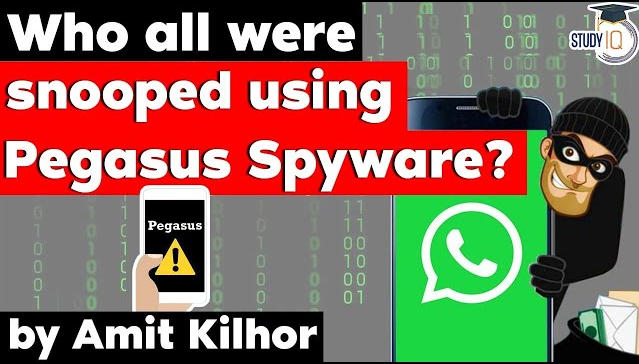Table of Contents
Who was spyed using Pegasus?


- A leaked database of thousands of telephone numbers believed to have been listed by multiple government clients of an Israeli surveillance technology firm includes over 300 verified Indian mobile telephone numbers, including those used by ministers, opposition leaders, journalists, the legal community, businessmen, government officials, scientists, rights activists and others
- The leaked database was accessed by Paris-based media nonprofit Forbidden Stories and Amnesty International and shared with The Wire, Le Monde, The Guardian, Washington Post Die Zeit, Suddeutsche Zeitung and 10 other Mexican, Arab and European news organisations as part of a collaborative investigation called the ‘Pegasus Project’.

- Working together with the technical lab of Amnesty International, a team of over 80 journalists coordinated by Forbidden Stories sought to identify and verify the individuals to whom these numbers belong and then conduct a forensic examination of the phones in use by them for the period covered by the data, which, in the Indian case was approximately mid-2017 to mid-2019.








- Internationally, the list includes more than 180 journalists from reputed organisations including the Wall Street Journal, CNN, The New York Times, Al Jazeera and more, as well as hundreds of politicians and government officials, dozens of human rights activists, several Arab royal family members and the numbers of some heads of state and prime ministers.
- The Indian Telegraph Act and Information Technology Act prescribe procedures that must be followed for lawful interception. Different countries have different laws but the use of hacking to deliver surveillance spyware in India by any individual, private or official, is an offence under the IT Act.

- the procedure for lawful interception involves not just written, time-bound authorisation in each instance but the use of the telecom or computer resource intermediary as well, who is supposed to enable the interception, and does not cover the activities proscribed by Section 43 of the IT Act under the definition of “hacking”.
- Hacking an individual’s smartphone is a necessary step in subjecting an individual to surveillance by spyware such as Pegasus.
- NSO has repeatedly said it only sells Pegasus to “vetted governments”.
Latest Burning Issues | Free PDF






















 WhatsApp
WhatsApp